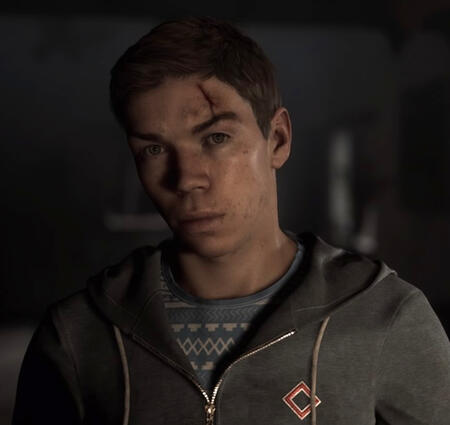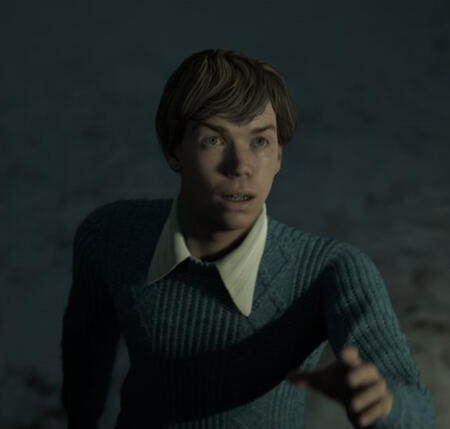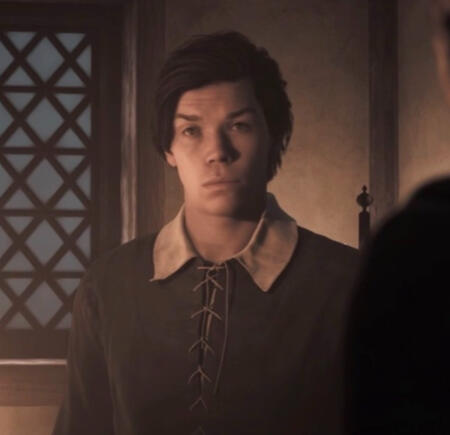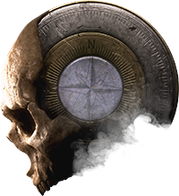
Compassionate Soul
Andrew
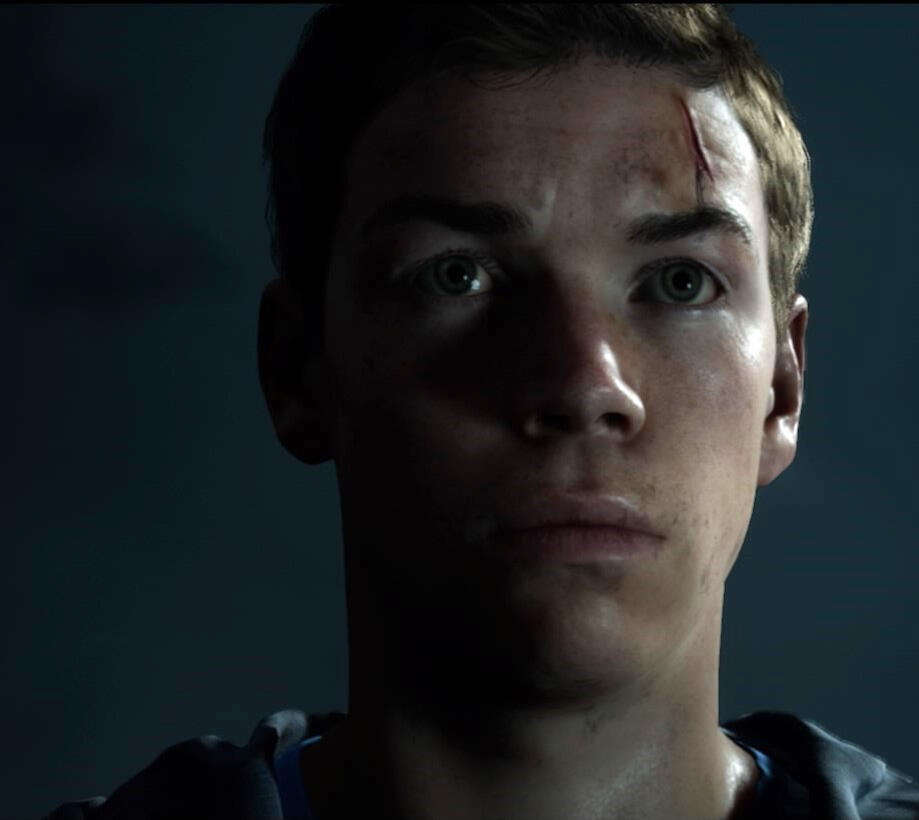
About:
Likes: baseball, books, documentaries, writing
Dislikes: conflict, loud noises, sleep
A young man with a lively mind, but little experience of interacting with others following a home-schooled education. This means that while he has great academic potential, he is emotionally distant. He was on a field trip with his creative writing class when their bus crashed in Little Hope.
Canon divergence:
Andrew is the current reincarnation of Abraham Alastor, and the most recent incarnation following Anthony Clarke. He is a real, living person, with a life outside of/prior to the events of the game, and when the bus crashed outside Little Hope, he suffered a head injury that caused temporary amnesia. He slowly regained his memories over the course of the night and in the days that followed, although some are still a bit foggy. He still bears a scar on his forehead from the incident.
Little Hope & the bus crash:
Unbeknownst to the group, the crash was not entirely an accident; they were all pulled toward the town by a curse that has held their souls captive since the witch trials of 1692. Born of the anguish and suffering caused by the trials, this curse created the demons that haunt Little Hope and tied the six souls together, forcing them to reincarnate again and again. Each life is doomed to meet the same grisly fates as their original counterparts— unless they can defeat their demons and right the wrongdoings of the past.
(For more information about the curse, see the "Accursed" tab.)
Anthony Clarke
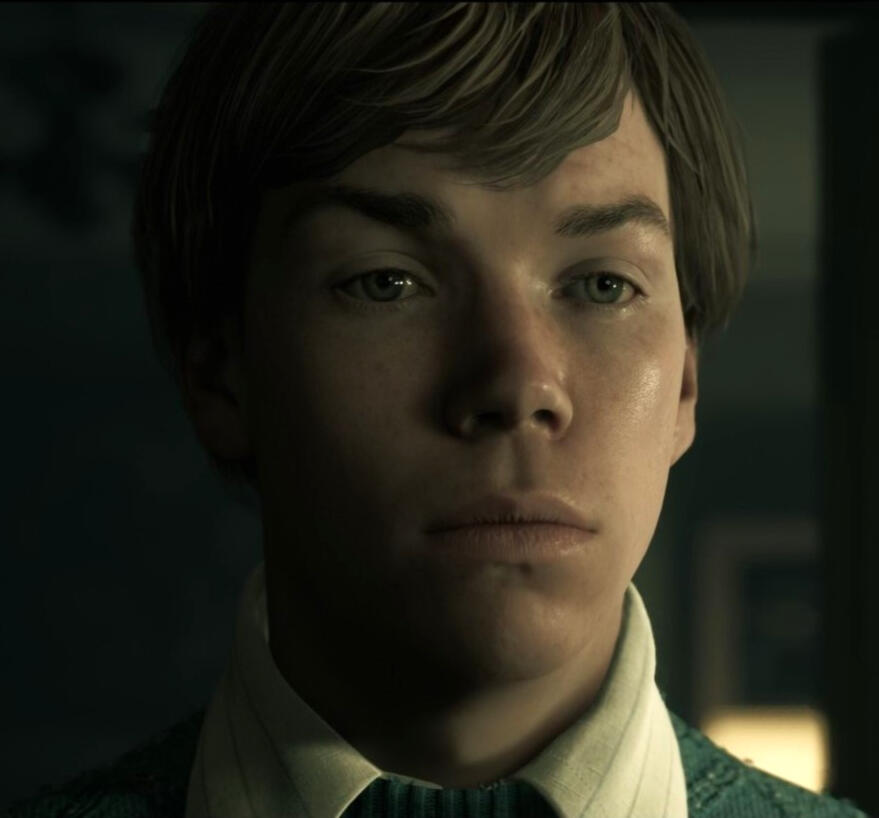
About:
Likes: baseball, history (particularly local/morbid stuff, like the witch trials), reading (books & comics), tea
Dislikes: alcohol, conflict, loud noises
The third child adopted into the Clarke family, Anthony is a quiet but friendly young man with an unusual interest in the more macabre aspects of history. He has a particular fascination with witchcraft and the trials that occurred in Little Hope in 1692, which his mother strongly disapproves of; this has been a frequent point of contention between the two.
Family is something that's extremely important to Anthony, as he loves his own deeply and tries to spend as much time as he can with them. He is especially close with his three siblings, Tanya, Dennis, and Megan.
Things have been difficult in the Clarke household recently, though; conflict has been a frequent visitor. His parents have been arguing more often lately, and each fight seems to be more serious than the last. It's only made worse by the fact that Anthony's dad has been coming home drunk almost every night; liquor always makes him say such cruel things. Anthony would know, because he's been on the receiving end of it before, and he's heard his mom and dad arguing enough to know the script by heart.
Unsurprisingly, the conflict extends beyond that of his parents' fights. His mom has been more strict lately, her temper shortened by all the stress; it seems like she's always yelling at one of them for something. While his older siblings, Tanya and Dennis, are quick to argue and butt heads with his parents, Anthony tends to stay quiet most of the time, desperate to keep things copacetic. He just wants everyone to get along like they used to, so he spends much of his time trying desperately to fix things.
It's a difficult task, with rising tension in the household and stress getting to the best of all of them. His siblings are always bickering, too, which isn't a new development, but everything seems to have a sharper edge these days. Words are harsher, the fights more heated, and absences more frequent. He can hardly blame his older siblings for not wanting to be home, since he wishes he could get out of the house more often, himself, but even still, it stings that they're so eager to move on with their lives— eager to leave him behind.
With his parents constantly arguing, and his older siblings preoccupied with their own lives, taking care of Megan— the youngest Clarke— is a responsibility that often falls on Anthony’s shoulders. He's constantly defending her from the ire of their oldest siblings and parents alike, and he tries to check in on her as much as possible. Sadly, even though he's doing his best, he frequently falls short, overwhelmed by the immense effort he's putting into trying to fix his family. Most of the time, this leaves Anthony feeling horribly alone— forgotten by both his older siblings and his parents.
At the end of the day, though, their issues don't matter, because Anthony loves his family deeply and would do anything for them.
Canon Divergence:
Anthony died with the rest of his family on January 16th, 1972, when he ran back into the fire. The house collapsed on top of him, as seen in the opening sequence of the game, and by the time firefighters arrived, it was too late to save him.
He was one of many reincarnations of Abraham Alastor.
Abraham Alastor
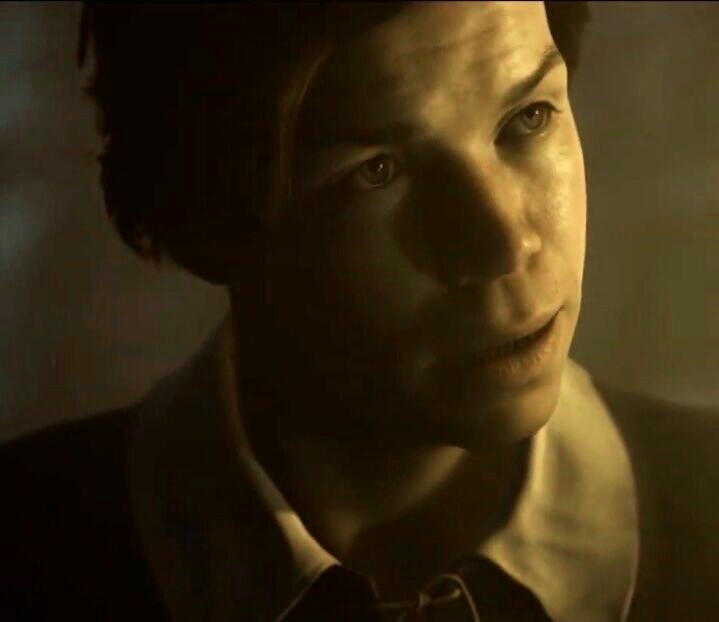
About:
Likes: quiet mornings, reading/learning, tea, writing
Dislikes: storms, messiness, loud noises
Abraham is a kind, responsible man who cares deeply about the Little Hope community. Although he has a strong sense of justice and strives to do the right thing, he is riddled with self-doubt, often seeking the guidance and opinions of those he trusts before making an important decision. He is open minded, but apprehensive— and because of that, he finds it difficult to open up to others.
Growing up, Abraham had a difficult relationship with his father, who blamed him for his mother’s death. He spent much of his time away from home as a result, either studying, running errands, or doing work for others in the community— particularly his neighbors, the Miltons. Many days were spent on their farm, toiling in the fields and tending to their garden; so many, in fact, that Abraham became close friends with two of the Miltons’ children. David, their son, who was around his age and also worked in the fields, and Tabitha, their elder daughter, who brought them out drinks and kindly patched up the holes in Abraham’s clothes.
As Abraham got older, he began to work less, focusing instead on his schooling; he had always had a love of learning and a voracious appetite for books of any kind. He learned to write in Latin, and like many Puritans of his time, studied classical authors as well as the Bible. This eventually led to him befriending Joseph, who encouraged him to dedicate himself completely to the pursuit of knowledge. With dreams of one day attending college, Abraham took this advice and quit working for the Miltons altogether— but his friendship with David and Tabitha persevered and even continued to thrive.
It was the Miltons who were there for 15 year old Abraham the winter his father took ill and died, sharing their meals and even going so far as to chop extra firewood for him so that his home might stay warm. Although his father was not a kind man, Abraham mourned him all the same— but the Miltons’ constant presence in his life reassured him that he was not alone.
(The next year, when their mother was taken into slavery during the Commencement Day Massacre, Abraham would return this kindness— though he never considered it a payment of any kind. He cared deeply about the Miltons and wanted the best for them; he even worried about the wellbeing of Mary, the youngest Milton child, despite the fact that he didn’t see her as often as her older siblings.)
A few weeks after Abraham’s father died, the Miltons were again a source of great comfort; this time, when he realized attending Harvard was an impossible dream. He began working with David in the fields again, trying to bury his disappointment about giving up on college beneath his gratefulness for his friends. After hearing several people lament the cost and scarcity of books at a town meeting, however, he devised a new way to pursue his love of learning: opening a book shop in Little Hope.
His bookshop is his pride and joy; it’s a place he finds great comfort in and works hard to upkeep. It’s often busy during the day, as townsfolk and traders alike stop by— to the point where he sometimes forgets to eat. He finds that he doesn’t mind the bustle and noise so much, though, since the high demand enables him to both keep the store open and order more stock from the larger port towns. Besides, nothing makes him happier than when he’s specifically able to recommend someone a book.
Canon Divergence:
There are two separate timelines to consider in regards to Abraham: the Original Timeline (what actually happened), and the Amended Timeline (what can happen, if Andrew & the modern day characters save Mary).
In the Original Timeline, when Mary is accused of witchcraft, Abraham has no one to guide him towards the truth. Terrified and uncertain, caught up in hysteria like the rest of the town, he remains silent during her trial, failing to stand up for the child who is in his care. Almost immediately, he knows this was the wrong decision— but it’s too late. The moment she is found guilty, she is dragged outside of the courtroom and burned at the stake, while Abraham stands nearby, hanging his head in grief and horror.
The immense guilt and regret he feels over Mary’s death haunts him in the seven lonely years that follow. Because she was his ward, and because she essentially said as much to him while she was being dragged to her execution, Abraham feels solely responsible for her death— thinking he should have stopped it somehow, proclaimed her innocence even if he had no evidence. He was trusted to take care of her, one of David’s last requests before he, too, met a gruesome end, executed for crimes he would never commit.
Abraham feels that he not only let Mary down, but all of his friends, too: David, Tabitha, and Joseph. He was there for all of their trials and executions, and did nothing to stop their deaths, either— too afraid of being accused of witchcraft himself. Because of this selfishness and cowardice, he has nothing and no one left but an overwhelming sense of remorse and the empty space where his friends used to be.
After seven years of this punishment (and he does believe it to be punishment for what he’s done), however, Abraham can no longer bear it. On February 13, 1699, he commits suicide, and the epitaph on his grave bears a warning for all to see: “factum fieri infectum non potest.”
Translated into English: “It is impossible for a deed to be undone.”
In the Amended Timeline, Andrew and the other modern counterparts interfere in the past, and Abraham is able to seek counsel from his most recent reincarnation. When Reverend Carver tries to accuse Mary of witchcraft, Abraham marches down to Judge Wyman, and it is revealed that the Reverend is the one who has actually been dabbling in the occult.
Mary remains in Abraham’s care after the trials end, and he tries his best to take care of her and give her the happiness she deserves. Unfortunately, their time together is short-lived; later that same year, Mary gets sick and never recovers. After her death, Abraham is inconsolable, having already been despondent over the loss of so many others, and now grieving the child he considered to be like a little sister.
Like in the Original Timeline, Abraham is haunted by the horrific deaths of his closest friends, never forgiving himself for standing by silently while they were killed. He also still blames himself for Mary’s death, believing he didn’t take care of her well enough— despite all evidence to the contrary. Very quickly, his grief begins to consume him, and while the rest of the town moves on from the trials, he remains stagnant, retreating into himself.
On February 13, 1699, Abraham died of Typhoid Fever, alone in his home. Mary’s poppet was sitting on the nightstand, a reminder of all that he lost; his grave, too, bears this reminder in its solemn advice: Factum fieri infectum non potest.
The Deaths of Mary and Abraham
In the Original Timeline, Mary and Abraham's fates are grim, but not without reasoning. The lore established in-game shows a consistency in the deaths of each protagonist throughout reincarnations; for example, Joseph and James are both crushed, while David and Dennis both are impaled. Clues related to Tilly Johnson also suggest a shared fate between reincarnations, even those not seen in the game, as her plaque mentions her mysterious death might have been due to hanging— just like Tabitha and Tanya.
Therefore, it stands to reason that Abraham and Mary's fates would also remain consistent throughout timelines and reincarnations. If all endings of the game are considered, and the assumption is made that Anthony died in the 1972 fire, their fates do, in fact, align.
The logic is as follows:
Megan Clarke catches fire while standing in her burning home, and dies in 1972.
Mary Milton is burned at the stake in 1692 if she is found guilty of witchcraft. Since Andrew and the modern day reincarnations would not have been there to change the tides of fate in the Original Timeline, it can be assumed that this is how she died.
Andrew will try to commit suicide in the Bad Ending of the game if he has the gun and has at least one bullet remaining. If Mary was not saved, then he will succeed.
Anthony Clarke runs into his burning house in 1972, and dies in the inferno. Whether this is a failed effort to find his mother, a conscious attempt at suicide, or both, his death is still caused by his own purposeful action.
Abraham, then, would follow (or rather, originate) the trend of his reincarnations, committing suicide in some undetermined way. In fact, the conditions leading up to and determining his death closely mirror Andrew's in the Bad Ending: with Mary's gruesome death on his hands, and with no surviving friends or support.
